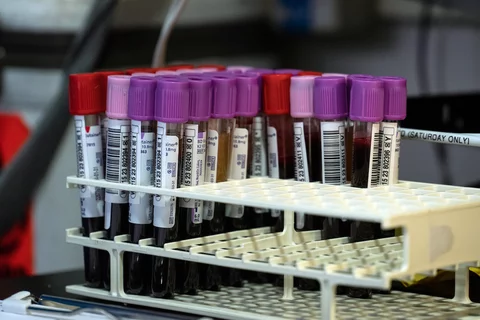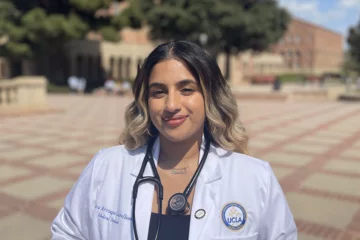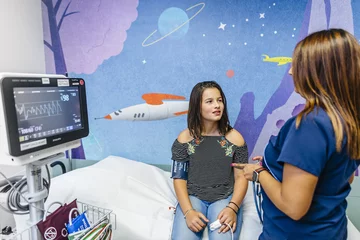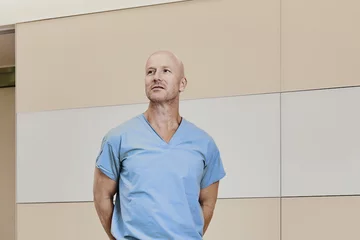A Day in the Life of Dr. Kanwarpal S. Kahlon, Hematologist at UCLA Health
Hematologists diagnose, treat, and research blood conditions. Their work is as complex and varied as blood itself.
Blood flows through all parts of the body. It regulates temperature. It transports oxygen, nutrients, and immune cells. It plays an essential role in myriad bodily functions.
“The blood system touches every other system,” explains UCLA hematologist Kanwarpal S. Kahlon, MD. “Our work reflects that. We focus on the big picture.”
A hematologist’s work changes from day to day—something Dr. Kahlon finds rewarding and invigorating. He spends most of his time at the clinic with patients or at the hospital, consulting on numerous issues that require his expertise.
When he’s not interfacing with patients, he might be analyzing their blood under a microscope.
“We take a drop of blood, smear it on a glass slide, and look at it under a microscope,” he says. “This helps us evaluate blood abnormalities; it’s one of the tools of the hematologist’s trade.”
What Does a Hematologist Do?
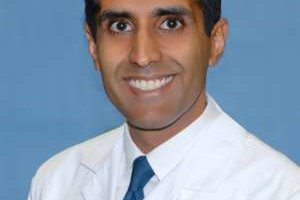
Hematologists diagnose and treat blood conditions. This broad objective encompasses a range of specific functions and treatment areas.
When to See a Hematologist?
Patients exhibiting any of the symptoms associated with blood disorders may wish to see a hematologist.
Common blood disorder symptoms include:
- Abnormal bleeding
- Fatigue
- Weakness
- Shortness of breath
- Recurrent fever
- Abnormal bruising
- Recurrent infections
What Diseases Does a Hematologist Treat?
General hematologists, such as Dr. Kahlon, treat every kind of blood disorder. Hematology subspecialists typically treat a few specific diseases. Hematology oncologists, for example, focus on malignant blood conditions.
Despite variations in their focus areas, all hematologists solve mysteries. Acting as blood detectives, they trace a patient’s symptoms to their causes. They might explain a low white blood cell count before unraveling a confounding clotting issue.
Dr. Kahlon finds solving cases—improving patients’ health and wellness—deeply rewarding. Thanks to burgeoning knowledge about genetics and the genetic causes of disorders, hematologists can explain a majority of symptoms.
“We’re building an understanding of what conditions could be genetic and what the relevant genes are,” Dr. Kahlon says, offering hemophilia as just one example. Pinpointing genes associated with the disorder has led to more specific diagnoses and more precise treatments.
Despite diagnostic advances, some cases still evade explanation. Rare conditions may result from unrecognized genes or from complex interactions with other body systems, such as the immune system, that overlap with the blood system.
Dr. Kahlon finds confronting these cases among the most challenging, yet motivational, aspects of his work.
“We’re still learning,” he says. “The field continues to evolve and progress. We have approximate answers in most cases, but I think in 10 to 20 years, we’re going to know a lot more.”
Why Would a Patient Be Referred to a Hematologist?
Practitioners may refer a patient exhibiting symptoms associated with blood conditions to a hematologist. The hematologist will evaluate the symptoms, make a diagnosis, and begin treatment if necessary.
What Does a Hematologist Check For?
Hematologists diagnose several different non-cancerous blood conditions, including:
- Bleeding disorders
- Anemia (low red blood cell count)
- Blood clots
- Clotting disorders
- Hemophilia
- Thrombocythemia (high platelet count)
- Thrombocytopenia (low platelet count)
- Leukocytosis (high white blood cell count)
- Leukopenia (low white blood cell count)
Some hematologists and all hematology oncologists diagnose blood cancers, including:
Practitioners may also refer a patient exhibiting unexplained symptoms to a hematologist.
Hematologists—like autoimmune specialists and immunologists—collaborate with other members of a patient’s care team to figure out these challenging cases.
“We might have consultations for patients with persistent fevers not yet linked to a cause or explanation,” says Dr. Kahlon. “If an infectious disease doctor or an immunologist hasn’t identified a cause related to the immune system, then we’ll see if it might have something to do with the blood system.”
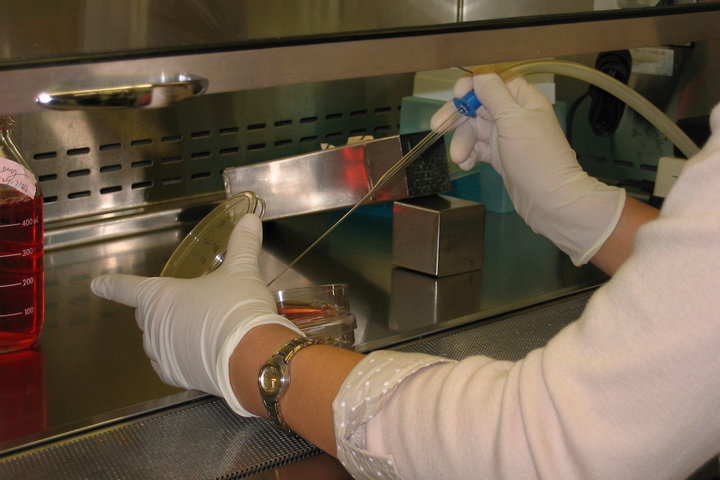
How to Become a Hematologist
Aspiring hematologists should expect to complete medical school, residency training in internal medicine or pediatrics, and additional subspecialty fellowship training in hematology, hematology oncology, pediatric hematology, or hematopathology.
Dr. Kahlon says his path to becoming a hematologist started with an interest in blood. During his undergraduate years, he became fascinated by immunology, particularly the blood cells that make up the immune system.
Pursuing that interest, he began conducting research with a pediatric hematology oncologist who became his mentor. They experimented with blood-based cancer therapies, including chimeric antigen receptor (CAR) T cell immunotherapies.
Both the experience and the mentorship solidified Dr. Kahlon’s desire to pursue a career in hematology. He found the laboratory work enjoyable, fascinating, and comfortable somehow—it came naturally to him.
“Hematology is my home in a way,” he says. “I just find it endlessly fascinating.”
He advises students interested in hematology to lean into their curiosity and explore everything the field has to offer—which is, in fact, something for everyone.
“The blood system touches on everything,” he says. “It affects so many different things. There really is something to fascinate people with all different interests.”
FAQ for Aspiring Hematologists
What 3 characteristics make someone a strong hematologist?
Dr. Kahlon says strong potential hematologists will likely be curious, humble, and compassionate.
Curious
To make the right diagnosis, hematologists ask a lot of questions.
“Not all cases will be straightforward,” Dr. Kahlon explains. “So you’re trying to provide answers and playing detective—looking for clues that maybe aren’t readily apparent.”
Being curious enough to consider many different diagnoses ultimately benefits patient health and well-being.
Humble
Humility works hand in hand with an effective hematologist’s curiosity. They need curiosity to pursue every possible avenue; they need humility to accept findings that defy their expectations.
“You will be surprised by diagnoses,” Dr. Kahlon says. “You’ll need to accept that you don’t know everything and be willing to learn every day and to continue learning as the field evolves.”
Compassionate
While important for physicians practicing all specialties, compassion is especially important for hematologists, who diagnose and treat complex conditions unfamiliar to most patients.
“You have to be able to sit down and talk to people about what’s going on, answer their questions, address their concerns, and understand where they’re coming from.”
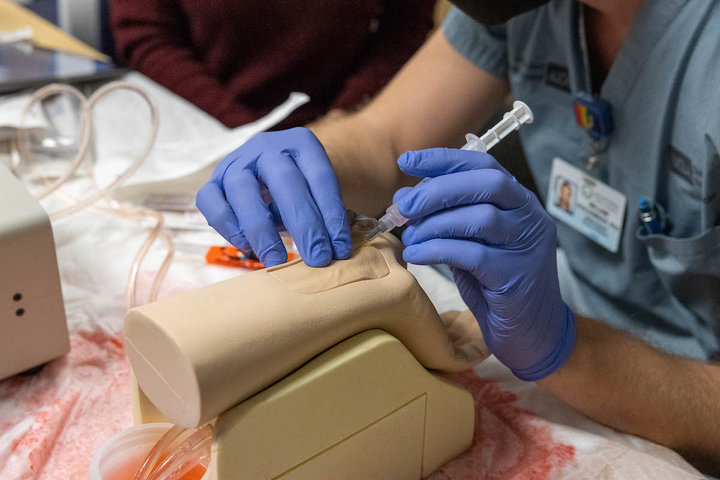
Can you specialize within the field of hematology?
Trainees have many options for further specializing within hematology. After completing residency training in internal medicine or pediatrics, they may pursue fellowship training in general adult hematology and/or in a specialization, such as:
- Hematology oncology
- Pediatric hematology
- Hematopathology
Physicians may also pursue training opportunities beyond their initial fellowship, further specifying their practice or research. They might become specialists in many areas, including:
- Transfusion medicine
- Blood banking
- Transplantation
- Bone marrow transplantation
- Stem cell transplantation
- Lymphoma
- Leukemia
- Myeloma
- Sickle cell anemia
“You can decide to be an expert in one disorder,” Dr. Kahlon says. “You focus on caring for patients with that disorder and on improving the big-picture care landscape.”
Focusing on a specific disorder may be appealing to physicians who wish to serve specific patient populations. They might become an expert in sickle cell anemia, for example, with the goal of caring for the patients of African descent it disproportionately affects.
What Is a Hematologist Oncologist?
Hematologist oncologists focus specifically on diagnosing, treating, and researching blood cancers. Their narrow focus differentiates them from hematologists, such as Dr. Kahlon, who may handle some blood cancers but mostly focuses on non-malignant blood conditions.
What Is a Hematopathologist?
Hematopathologists investigate blood conditions on the cellular level. They use advanced diagnostic techniques, such as cytogenetics and DNA sequencing, to pinpoint root causes of disorders affecting the blood, bone marrow, and lymph nodes.
How Much Does a Hematologist Make?
According to Glassdoor compensation data, the average annual hematologist/oncologist salary in the United States is about $250,000.
Blood Disorders Awareness Month
Blood Disorders Awareness Month takes place every March. Everyone has blood, and therefore, everyone should understand the disorders that could affect it.
“Your blood is important,” Dr. Kahlon says. “Knowing what’s going on in your blood is important.”
He urges everyone to keep up with routine blood tests with their primary care doctors and to seek extra medical attention if they notice anything unusual.
He also wants everyone—from the general public to the affected patients themselves—to know that all blood disorders, the cancerous and non-cancerous alike, are important. They all have significant impacts on quality of life and deserve equal attention, care, and resources.
The general assumption that non-malignant hematology conditions are somehow less important than malignant hematology conditions is among the most common misconceptions people have about the field. It affects patients as well as the provider landscape.
“The world needs more hematologists, including hematologists who deal with non-cancerous blood issues,” Dr. Kahlon says. “But medical students may discount general hematology because it doesn’t come with the widespread recognition of working in oncology and curing cancer, for example.”
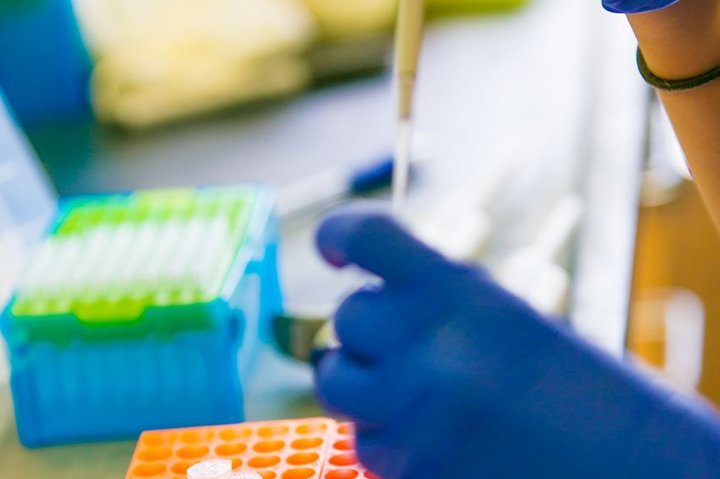
Dr. Kahlon also hears people say that hematologists are just blood doctors or that they spend all their time in the laboratory looking at blood.
While hematologists may be labeled “blood doctors” and do look at blood, these reductive ideas overlook the comprehensive patient care at the core of everything hematologists do.
“Hematologists are internists at heart. We do the same things any other good internist might do from day to day,” Dr. Kahlon says. “We’re interested in everything that’s happening—not just the blood. We look at the entire picture.”
